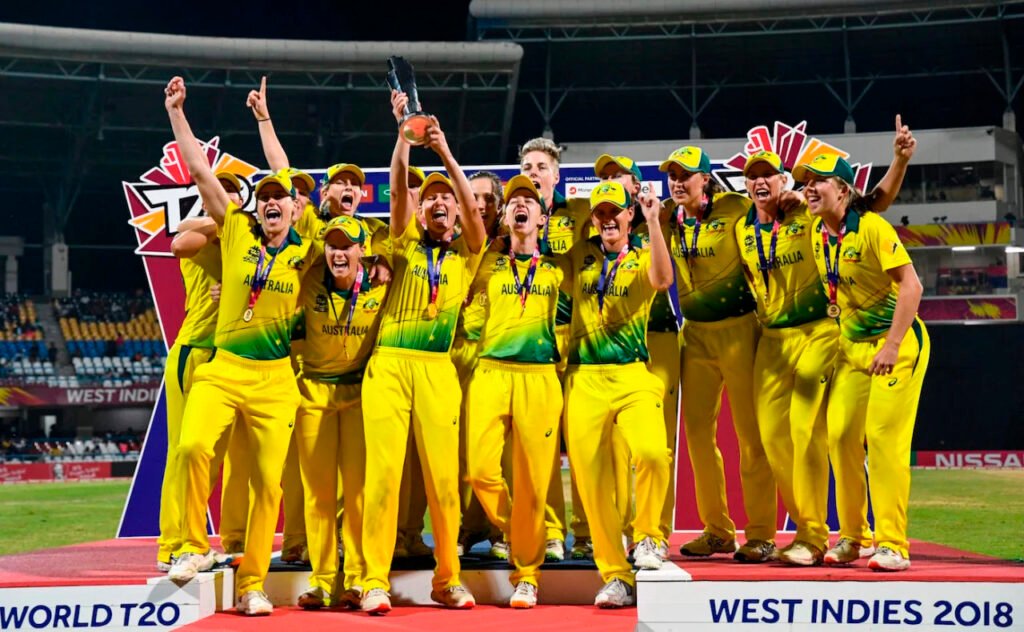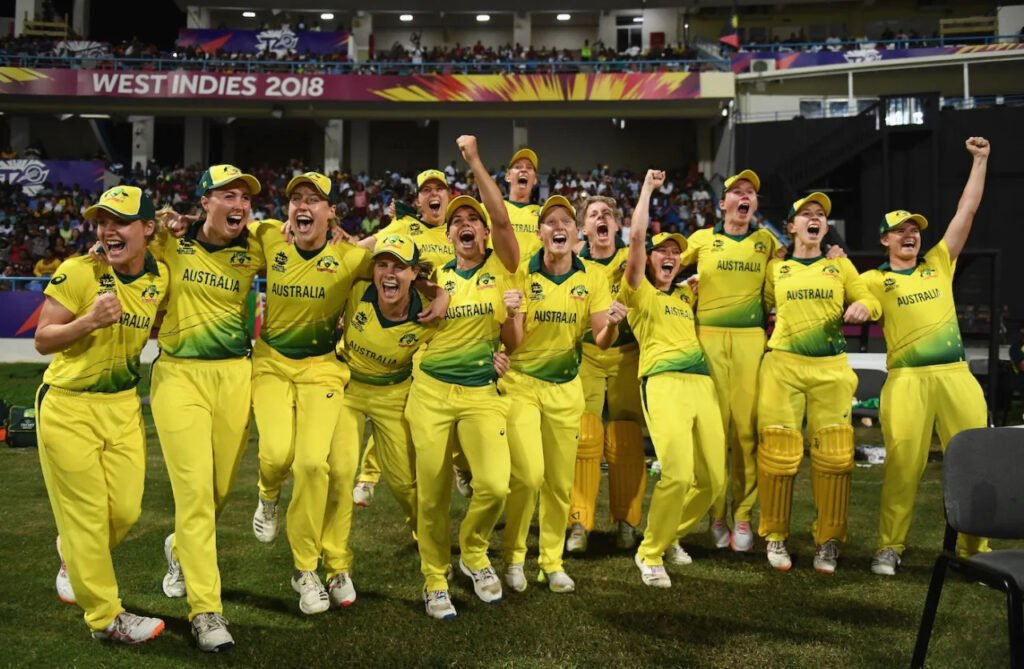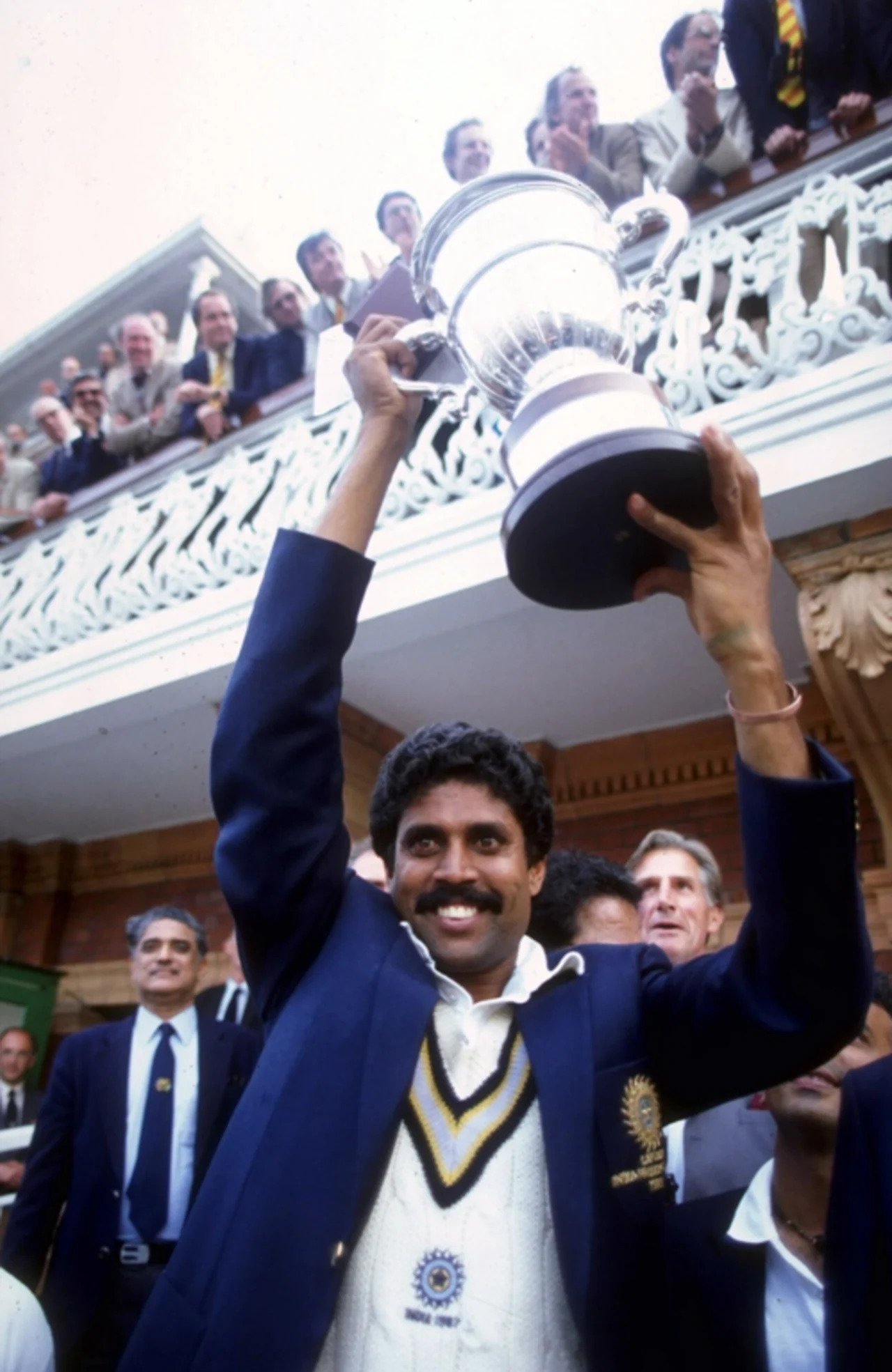Australia Women’s Dominating Victory over England Women in 2018 T20 World Cup Final
Australia clinched their fourth World T20 title with a dominant eight-wicket victory over England in a thrilling finale at the Sir Vivian Richards Stadium.
Following batting meltdown, England’s dream of becoming two-time world champions came to an abrupt end.

England 105 (Wyatt 43, Knight 25, Gardner 3-22, Wareham 2-11) lost to Australia 106 for 2 (Gardner 33*, Lanning 28*) by eight wickets.
Until the next world event in 2020, Australia will continue to hold the record of never losing to England in a women’s cup final. At the Sir Vivian Richards Stadium in North Sound, Antigua, Meg Lanning’s team easily defeated England by eight wickets to win their fourth World T20 title.
England collapsed to 105, just as they did in the World T20 final four years prior in Bangladesh. Remarkably, Australia scored the runs in 15.1 overs both times, despite the sluggish surface this time. England’s spin threat was neutralized by heavy dew, and scoring runs was not a major concern.
Alyssa Healy set the tone for the chase with a 20-ball 22, including 12 off Anya Shrubsole’s opening over, somewhat making up for many mistakes behind the stumps. She was the tournament’s top run scorer at the end, scoring 225 runs in one less innings than the next highest. She was also the clear winner of Player of the Tournament as a result.
Healy’s career came full circle in many respects in Bangladesh in 2014, the year Australia last won the World T20. Even though she was still a rookie and was far from certain of a spot in the starting lineup, Australia made it to the finals thanks to her sharp criticism at number seven during a tight chase against the West Indies in the semifinals. Four years later, here in the West Indies, she once again proved her mettle by emerging as one of the women’s game’s most fearsome ball-strikers.
The Powerplay was England’s best chance of exerting pressure on Australia. However, they ultimately gave up 37 wickets for just Healy’s removal. The early speed was then maintained by Ashleigh Gardner and Meg Lanning to complete the deal. Australia lost as many as five catches due to fielding errors that may have been costly on a different occasion, but their batting effectively covered them up.
Georgia Wareham, a 19-year-old legspinner, played a major role in their ability to still limit England. She started playing senior cricket in men’s Division Three while still in high school and went on to play for Melbourne Renegades in the WBBL. With Danielle Wyatt off to a quick start in the innings, all the early experience was put to the test. Her highest score would be 43.
Also Read: Australia Secures Hat-Trick Victory: Lanning and Coyte Shine in Women’s World T20
The in-form Amy Jones was dismissed in the fifth over of the match by Wareham’s first touch of the match, a straight hit from mid-on. She made a rapid move to her right from mid-on and then smashed a flat hit at the bowler’s end to counter two Australia wasted opportunities, first from Healy and then from Rachel Haynes at point, to give Wyatt a reprieve.
After dismissing Lauren Winfield and Sophia Dunkley in the thirteenth over, she delivered two more blows and was on a hat-trick. A flipper that struck the pad instead of the bat beat Winfield, and Lanning’s late decision to review a leg before wicket caused the wicket to fall.
On the subsequent delivery, the ball spun away and found its way through the space between the bat and pad, hitting the stumps and beating Dunkley. Healy lost a stumping opportunity in the same over that led to this double-wicket explosion.

Heather Knight fought valiantly, hitting through pockets of opposition, but she was unable to overcome Australia’s excellent death bowling. After slogging through most of her 28-ball stay, which yielded 25, she attempted to go over the top, but her chip to mid-off gave Gardner her second wicket. Her final numbers would be 3 for 22.
Gardner would add more to the evening than just that. Gardner rotated strike early to keep the scoreboard moving, yet wanting to get deep to make sure Healy’s fast start wouldn’t be wasted. This allowed Meg Lanning, who hadn’t quite found her game, some time to warm up.
Gardner finally let go, hitting Knight’s full toss for six when Australia needed 36. She then turned the tables on Kirstie Gordon, hitting her for two maximums in the following over and both times making it to the pitch to prevent any bite off it.
Australia won their fourth T20 title in five editions when Lanning finished it off with a bunt into the off side. Shrubsole, the hero of the World Cup final the year before, delivered a vicious stroke to equal the score. The title was a bright spot in an otherwise difficult year for Australia’s cricket team.
Mark Robinson stated
Mark Robinson, coach of England’s women’s cricket team, acknowledged the impact of rain on their performance in the Women’s World T20 tournament. He mentioned that the team struggled to find rhythm due to weather disruptions, leading to challenges, particularly in their batting lineup, during the final match against Australia.
The tournament began with England’s warm-up game against Australia being abandoned, followed by their Group-A fixture against Sri Lanka also being affected by rain. Despite securing victories against Bangladesh and South Africa, England faced difficulties, especially in the top-order batting, resulting in a defeat to West Indies.
In the final match against Australia, England’s batting lineup failed to deliver on a slow pitch, leading to a total score of 105 runs in 19.4 overs. Players like Tammy Beaumont and Lauren Winfield had a tough tournament, struggling to score consistently.
Coach Robinson mentioned in an interview with Sky Sports that despite efforts to cope with the challenges, including rain interruptions and slow pitches, there were disappointments in performance. He highlighted the need for better preparation and avoiding mistakes, emphasizing the importance of adapting to varying match conditions.
On a positive note, new players like Kirstie Gordon, Sophia Dunkley, and Linsey Smith showcased promising performances, indicating a competitive edge within the team. Robinson emphasized the significance of increasing competition for places to drive continuous improvement in the team’s performance.
Regarding the tournament’s success, Robinson suggested improvements in pitch quality for women’s cricket and called for efforts to develop cricket talent globally beyond traditional strongholds like England and Australia.
Overall, the Women’s World T20 highlighted challenges faced by teams due to weather conditions and pitch variations, underscoring the need for continuous adaptation and improvement in women’s cricket worldwide.




